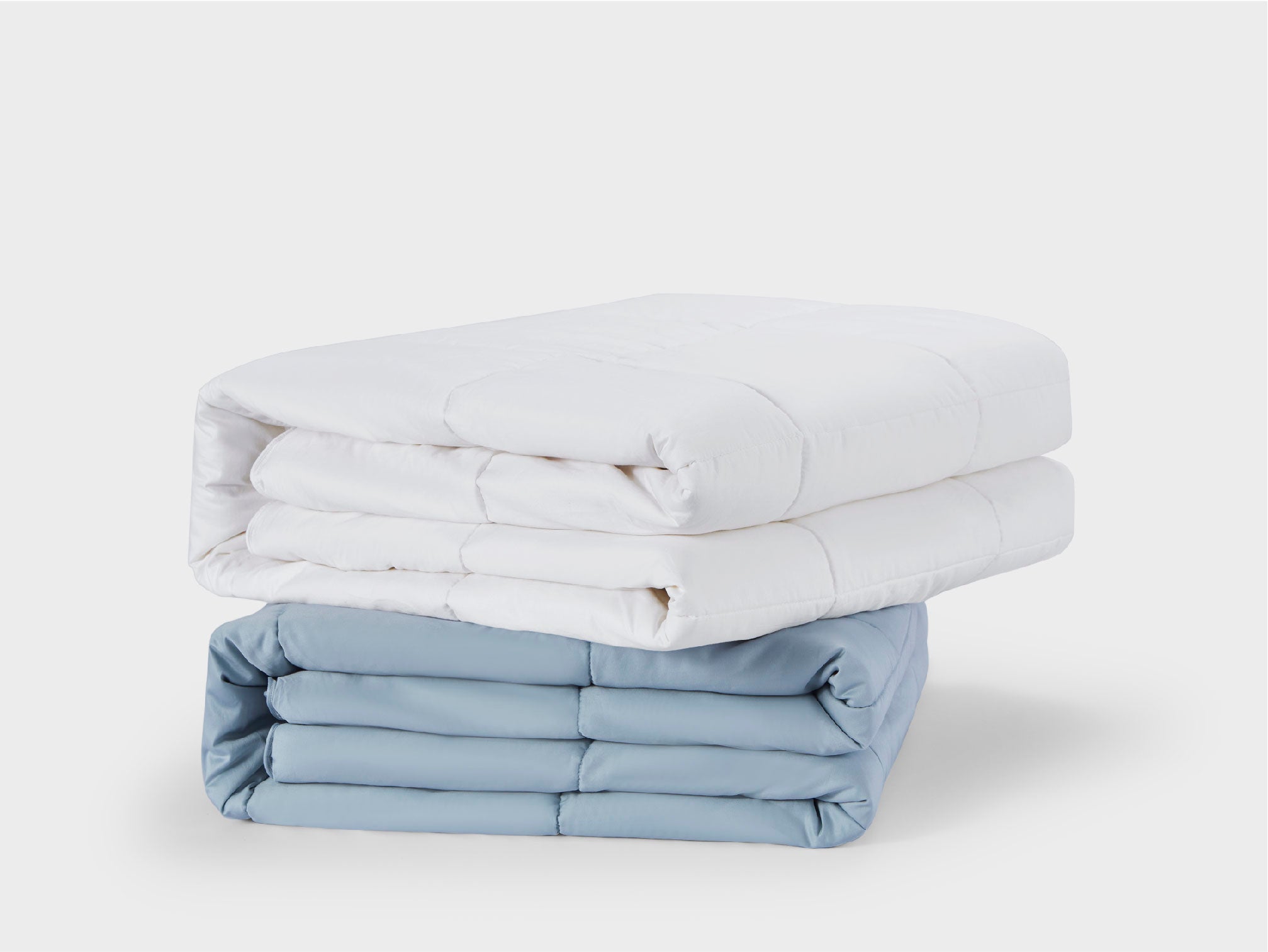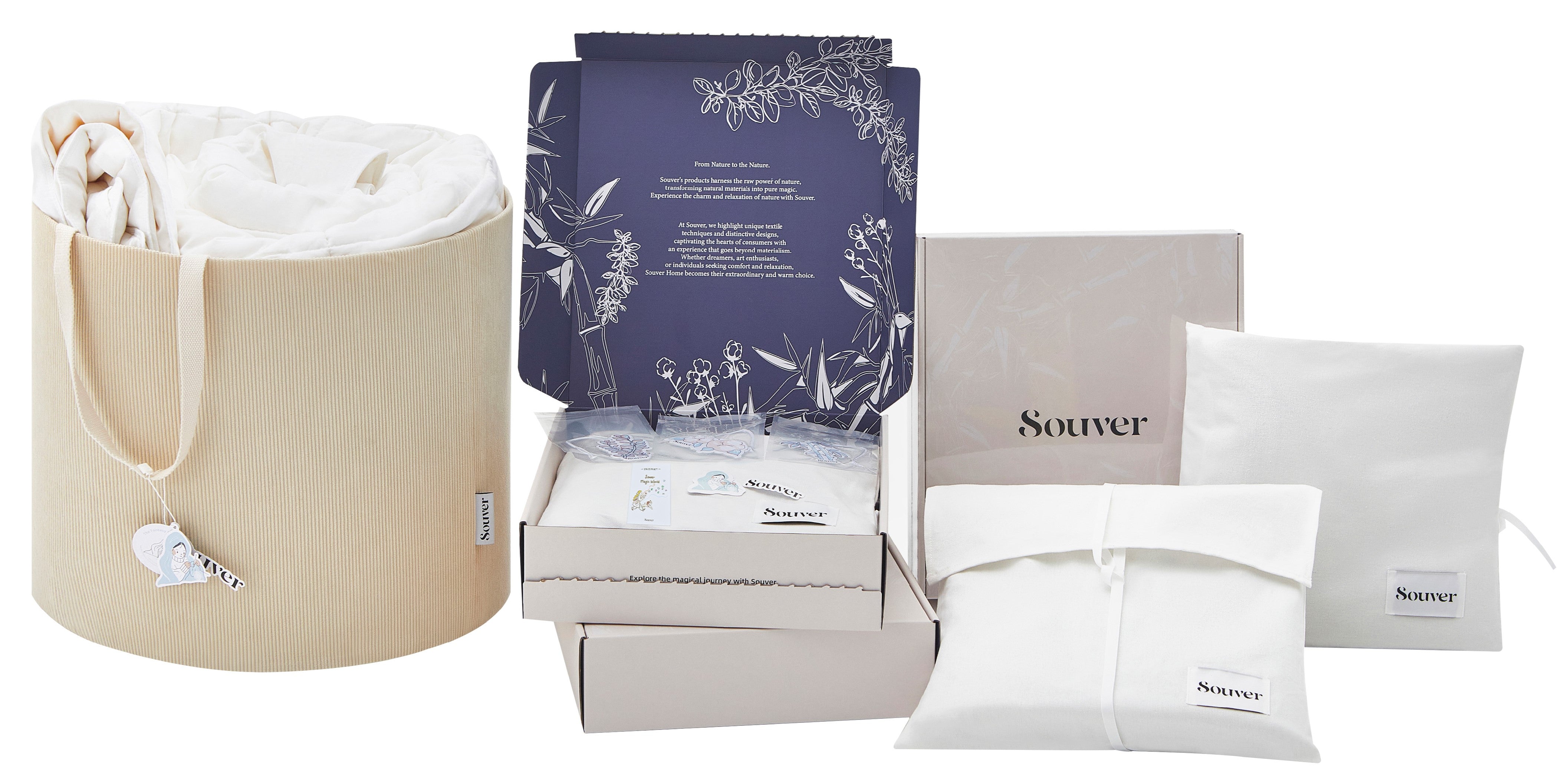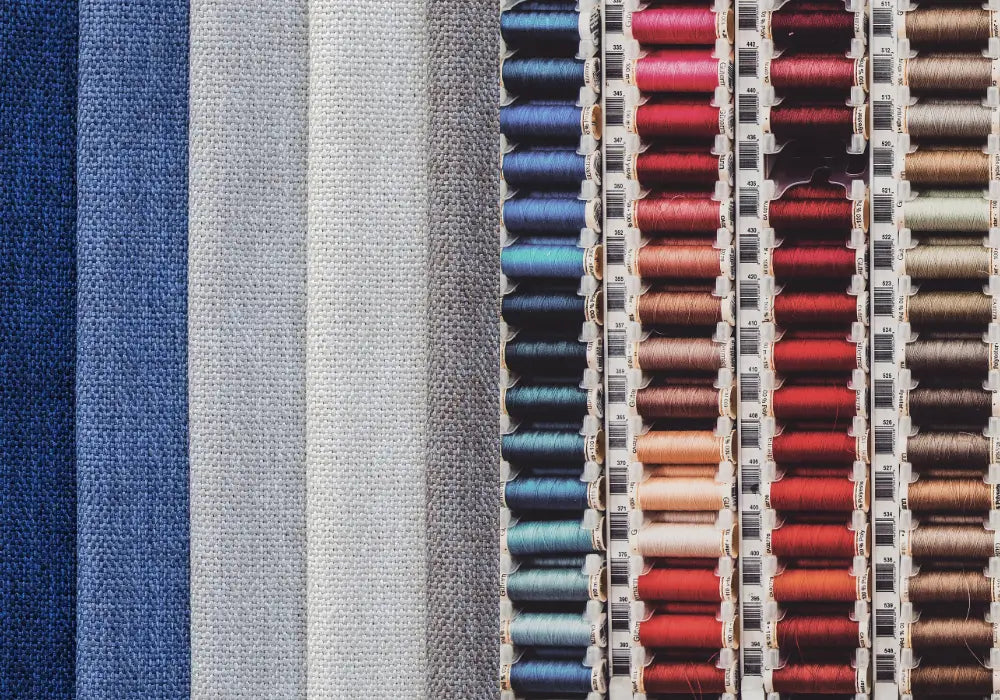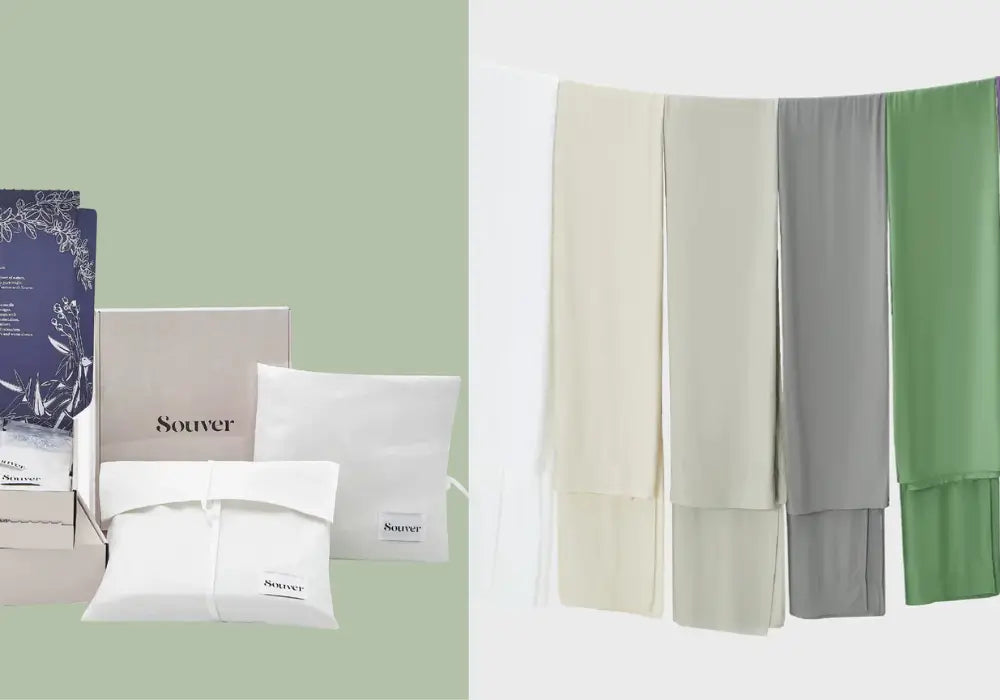Thread count refers to the number of threads woven into one square inch of fabric, affecting the sheet's softness and durability. Thread count is one of the first things shoppers notice when looking for bed sheets. Many assume that a higher thread count means better quality, but the reality is more nuanced, it’s not the only factor that determines comfort or durability.
This article introduces what thread count means and why it’s only part of the equation. You’ll know how to assess sheet quality beyond just the numbers, so you can make the best choice for a comfortable, long-lasting sleep setup.
Does Thread Count Matter In Sheets?
Yes, thread count can affect softness and durability. Thread count is a common factor people consider when shopping for bed sheets. But a higher count doesn’t always mean better quality material and weave also matters.
Many believe that a higher thread count means better quality, softness, and durability. However, thread count alone does not fully determine the comfort or longevity of sheets. Other factors, such as the type of cotton, weave, and finishing process, also play significant roles.
While thread count does contribute to the feel of the fabric, it’s important to understand that an extremely high thread count doesn’t automatically make sheets better. When choosing Souverhome sheets, it’s helpful to look at the thread count as part of the overall quality but not rely on it as the sole factor.

What Is The Thread Count Of High-Quality Sheets?
High-quality sheets typically fall within specific thread count ranges, balancing softness, breathability, and durability. For optimal comfort and long-lasting use, here’s what to expect from each range.
200 to 400
This range is ideal for sheets made with a percale weave, which gives them a crisp, cool feel. Percale sheets within this thread count are breathable and durable, making them a popular choice for warm sleepers or hot climates.
400 to 600
Sateen sheets often fall within this range. The higher thread count provides a smooth, soft feel with added warmth, thanks to the denser weave. This range is perfect for those who prefer a cozier, more luxurious sleeping experience.
600 and above
Thread counts over 600 are usually achieved by using multi-ply yarns, where several thin threads are twisted together. This can make sheets feel heavier, and while they may be softer, they’re often less breathable.
Souverhome 100% Organic Cotton Collection Bundle aligns well with expert recommendations. Their organic cotton sheets, crafted in a 300-thread count, offer a luxurious and breathable sleep surface while remaining durable.
They achieve comfort with high-quality long-staple cotton, particularly in the sateen weave, which provides a smooth, soft touch without relying on extremely high thread countsThis design ensures sheets that are cozy, breathable, and sustainable, making the 300-500 thread count range optimal for most preferences and sleep needs.
How Is Thread Count Measured?
1. Understand the Basics of Thread Count
Thread count refers to the number of threads woven into one square inch of fabric, combining both vertical (warp) and horizontal (weft) threads. For example, the Souverhome 100% Silk Filled Classic Duvet has 150 threads count running vertically and 150 threads count horizontally, the combined total threads count would be 300.
2. Check for Multi-Ply Yarn
Some manufacturers use multi-ply yarns, where multiple thinner threads are twisted together to make a thicker strand. Each ply may be counted as a separate thread, leading to a higher total thread count without added softness.
3. Measure Thread Count in Organic Cotton Sheets
Use a ruler to mark a 1-inch by 1-inch square on your sheet. Using a magnifying glass, count each vertical thread within that square inch. Count each thread that crosses horizontally within the square. Total these counts (warp + weft) to find the actual thread count.
Is A Higher Thread Count Better?
While a higher thread count can sometimes mean softer sheets, it doesn’t automatically mean better quality. Here’s why higher thread counts are not always superior.
Related Reading: Different Types of Bed Sheets: Materials and Thread Count
Breathability
Extremely high thread counts can make sheets feel denser, which can trap heat and reduce airflow. For hot sleepers, lower to mid-range thread counts may provide a cooler sleep environment.
Durability
Sheets with higher thread counts often use thinner threads to pack more into each square inch. This can lead to weaker fibers that are prone to pilling or wear and tear over time.
Cost vs. Comfort
Sheets with very high thread counts are often more expensive due to increased material and labor costs. However, sheets in the 300–500 range can feel just as soft and comfortable without the high price tag.
In summary, a higher thread count can improve the softness of sheets to an extent, but extremely high counts may not add significant value. Instead, focus on other quality indicators, such as the fiber type, weave, and finishing.

Factors to Consider When Choosing The Best Bedding
Selecting high-quality bedding goes beyond simply looking at thread count. Here are some additional factors to consider.
Fiber Type
Egyptian and Pima cotton are known for their long-staple fibers, which result in smoother, stronger threads. These cottons are ideal for those looking for durability and softness.
Weave Style
Percale and sateen are two of the most popular weaves. Percale offers a cool, crisp feel, while sateen provides a soft, warm texture. Choose a weave based on your comfort needs.
Finishing
Look for sheets that are mercerized or combed. Mercerization strengthens the fabric and helps it retain color while combing removes shorter fibers to create a smoother texture.
Brand Transparency
Reputable brands often disclose details about their materials and processes. This transparency can help you make informed choices about quality.
Trial Periods
Some brands offer trial periods, allowing you to test sheets at home. This can be a valuable way to determine if the sheets match your comfort and quality expectations.
Conclusion
While thread count plays a role in sheet quality, it’s not the only factor. Aiming for a mid-range thread count, around 300 to 500, often provides a balance of softness, durability, and breathability. Remember to consider fiber type, weave style, and finishing to find sheets that offer both comfort and long-lasting value.
Focusing on these quality indicators can help you select bedding that meets your needs for comfort, durability, and style, ensuring a better night’s sleep.
FAQs
1. What Thread Count Is Best For Sensitive Skin?
For sensitive skin, a moderate thread count of 300-400 in high-quality, natural fibers like organic cotton is recommended. This range is soft, breathable, and less likely to irritate compared to synthetic or heavily processed fabrics.
2. Does Thread Count Affect How Warm Sheets Feel?
Yes, thread count can influence warmth. Higher thread counts, especially in a sateen weave, tend to feel warmer because the denser weave traps more heat. Lower thread counts, like percale ones, are typically cooler and more breathable.
3. What Thread Count Do Luxury Hotels Use?
Luxury hotels often use sheets in the 300-500 thread count range, typically in a percale or sateen weave. This count offers a balance of softness, durability, and breathability, which appeals to a broad range of guests.
4. Does Thread Count Impact The Appearance Of Sheets?
Yes, thread count can affect appearance. Lower-quality, high-thread-count sheets may fade or develop pilling more quickly, while well-made, mid-range thread-count sheets tend to maintain their appearance better over time.








Dejar un comentario
Este sitio está protegido por hCaptcha y se aplican la Política de privacidad de hCaptcha y los Términos del servicio.